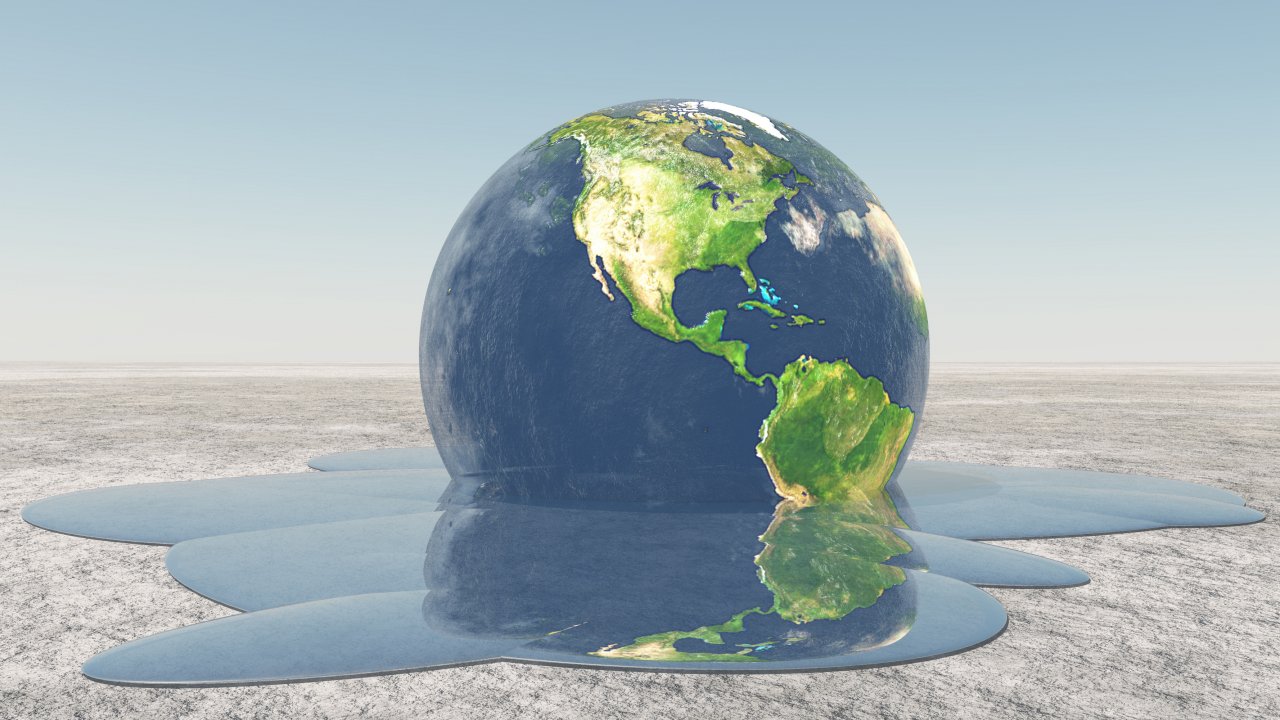How are terrorism and climate change related? Are they two facets of the same crisis facing humanity?
 The intelligentsia doesn’t have a clue. In a recent featured op-ed in the New York Times, the environmental writer Andrew C. Revkin contradicts himself from one sentence to the next regarding the nature of the human crisis.
The intelligentsia doesn’t have a clue. In a recent featured op-ed in the New York Times, the environmental writer Andrew C. Revkin contradicts himself from one sentence to the next regarding the nature of the human crisis.
First he quotes Raymond Pierrehumbert, a climate scientist at Oxford and apparent media darling of the NYT, saying, “at this juncture in our history, decisions or indecision in our lifetimes constitute ‘humanity’s final exam.’”
Head-spinningly, Revkin follows this urgent insight with: “The biggest challenge is grappling with divergent scales.” Which is it, “humanity’s final exam,” or the problem of divergent time scales?
That contradiction wouldn’t be so glaring if he was simply referring to the divergent scales “at which humans make policy decisions, reflected in our political frameworks,” as opposed to “the multi-millennial consequences of today’s energy choices.”
But he isn’t. He’s strains our brains by devotedly quoting another NYT maven, Nicholas Kristof: “Brussels survived this week’s terror attacks, but it may not survive climate change.”
Why? Because “the city is less than 100 feet above sea level,” and “this year’s election choice may shape coastlines 10,000 years from now.”
This kind of thinking adds to very confusion and inaction it purportedly seeks to redress. ‘Thought-leaders’ in ivory towers or New York bowers have a habitual need to distance themselves, in time and responsibility, from the real-time crisis confronting every living person on the earth.
The reason we aren’t we able to meet the present challenge of the climate crisis that will hit from 100 to tens of thousands of years from now, according to Revkin and Kristof, is that “we evolved in ways that leave us irrational.”
Our “primate brains evolved over tens of millions of years with special brain cells that are extremely sensitive to snake images,” enabling us “to see that poisonous snakes were a threat that that we are highly adapted to address.” That makes “our brains not well adapted to most of the biggest threats we actually face in the 21st century.”
That represents the worst kind of scientific popularizing. It’s also shallow and brainless. And it willfully misunderstands the nature of the human crisis, and does nothing to help people meet it.
The human prospect is in real and present danger, and these eggheads aren’t giving serious consideration to the underlying cause, which is the rampant fragmentation being generated by human consciousness itself.
Ecologically, human fragmentation is ravaging the earth. Psychologically and politically, humankind is tearing itself apart. So both terrorism and climate change arise from the fragmenting tendencies of human consciousness presently running amuck. It has to be first addressed within every serious person.
Climate change is just one pressing manifestation of the crisis wrought by human consciousness. It isn’t the classroom in which humanity is writing its “final exam.” Terrorism is the death wish in human consciousness that is destroying the human spirit.
The human spirit is dying in direct proportion to the degree that we are decimating the planet. If the human spirit dies, our species may physically linger on, or it may go extinct quickly (with a bang or whimper). If humans go extinct, the earth will recover, but if the human spirit dies, humanity can’t recover.
Many people, partially seeing the destructiveness of man, now openly wish for humans to become extinct, so the earth can recover and perhaps give rise to a more intelligent sentient species. But that not just a defeatist attitude; it’s a self-fulfilling one, since no one can separate themselves from humanity.
Trying to prioritize climate change over terrorism is hacking at the leaves, while leaving the roots to entangle and strangle. Externalizing the effects of man’s fragmentation is therefore a double existential error.
The earth and cosmic intelligence have an investment in the human brain. Not because of the science and technology the brain is capable of, but because ours is the only brain on the planet that if conscious awareness of the numinous.
But for that awareness to be, the entire mechanism of thought, good and bad (quantum physics and terroristic ideology for example) must regularly fall silent in a sufficient number of people. Then the darkness in human consciousness will stop destroying the earth, and the human spirit.
Martin LeFevre

